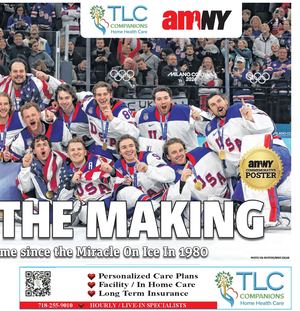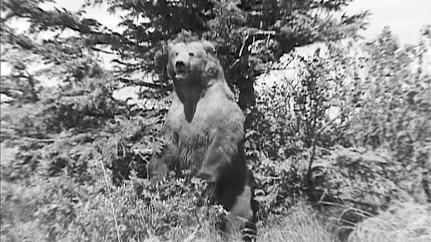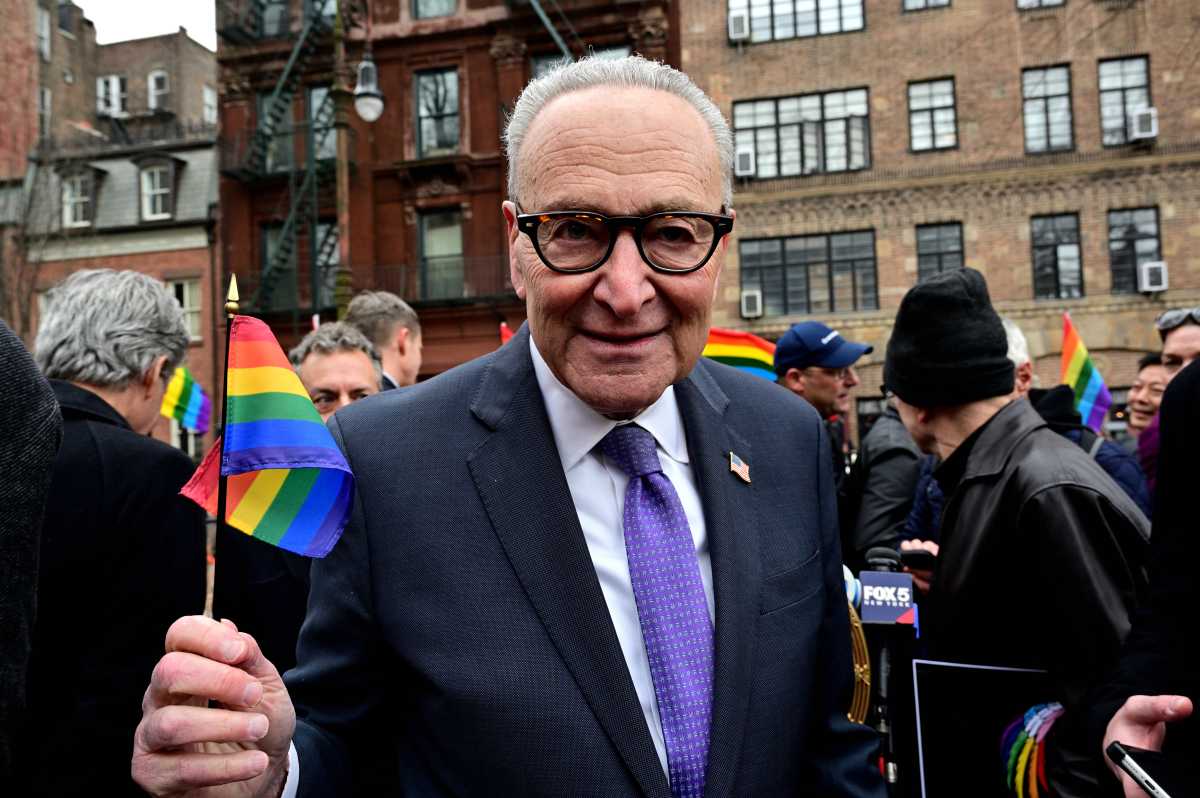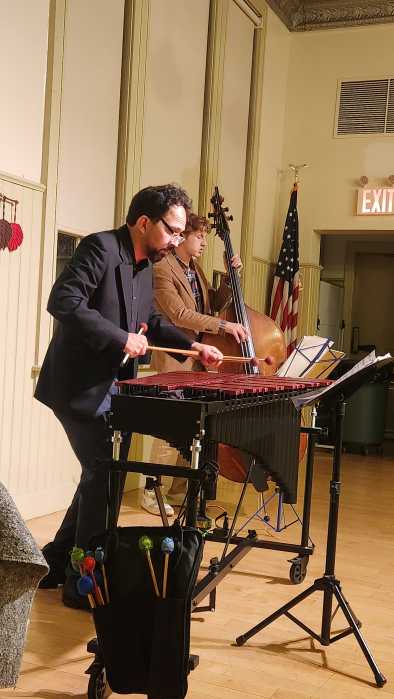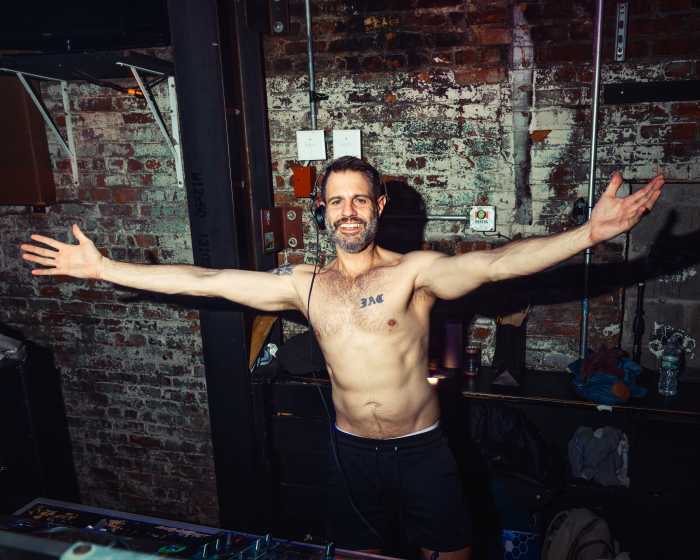By Rania Richardson
A moment with Grizzly Man film director Werner Herzog
More of an interlude than an interview, I spent a few minutes alone with director Werner Herzog at the Silverdocs Film Festival in Silver Spring, MD. He was racing between his afternoon “Doc Talk” Q&A in the warehouse-like filmmaker’s lounge and the evening screening of his new documentary, “Grizzly Man,” in the recently renovated AFI Silver Theatre. We left behind his entourage, gawkers and sycophants for some scheduled time in the festival’s Green Room above the art deco theatre. We closed the door behind us to shut out the noisy surroundings.
“Grizzly Man” follows the naturalist Timothy Treadwell as he lives among the grizzly bears in the Alaskan wilderness, and is ultimately killed and eaten by one of them. Editing Treadwell’s own video footage together with new material, Herzog constructs the chilling story of a misguided naturalist. He calls the film a sequel to “Aguirre: The Wrath of God,” his masterpiece that helped define the New German Cinema movement of the late 1960s and the 1970s.
There are parallels between Treadwell and the similarly blond haired and charismatic actor, Klaus Kinski, who played the conquistador Don Lope de Aguirre on a doomed expedition into the Peruvian rain forest. I first saw “Aguirre” in my youth, in the fertile art house territory of Cambridge, MA, along with “Fitzcarraldo,” “Nosferatu,” and “The Mystery of Kaspar Hauser.” Like his protagonists, Herzog is known as a daredevil and an eccentric. He is on my short list of director-heroes.
Timothy Treadwell and Amie Huguenard in Alaska.
On this warm June evening, Herzog is well dressed in a khaki suit and white shirt. He incongruously sports rugged walking shoes that confirm his reputation as a long-distance foot traveler. Enjoying this time together is paramount, since an in-depth interview is unrealistic now. He speaks in a near-whisper, but my recorder is in close proximity.
How are you enjoying doing publicity for your new film?
It’s been non-stop since 8 this morning. I would never complain about it because it is part of my profession. Once you have made a film you have to communicate through the media to an audience. I hear so many filmmakers complain about it, but I’m not in this culture of complaint. It’s part of what we have to do.
When did you realize that “Grizzly Man” could be a sequel to “Aguirre”?
Today. Those who had seen the film started to draw comparisons with Kinski and all of a sudden it occurred to me that “Grizzly Man” is a sequel to “Aguirre” and it is also a sequel to “Kaspar Hauser.” In a family series you find these kinds of characters that belong together.
You say that you put this film together in nine days. It sounds like you make your editing decisions quickly.
Sure, yes. I don’t fool around much.
Are you familiar with IMDb, the Internet Movie Database?
No, what is that?
It’s a database for film with lots of details such as casts, technical specs, release dates…
But it’s probably completely full of mistakes, very shallow.
I find it fairly reliable for basic research. Under your name there are over 40 films listed since “Aguirre,” yet that one is still considered your most important. How do you feel about that?
So what! It’s their problem, not mine. [We both laugh.] I’ve made 50 or so films. I couldn’t care less.
Of course, it’s also considered one of the most important films ever made.
So be it. It’s very ephemeral. Tomorrow it’s something else. Maybe tomorrow people will identify with “Grizzly Man.”
The festival’s press rep peeks in and says that the Green Room needs to be open for more guests. Herzog says, “Oh, no, we won’t let anyone in! Could you go away for the next 3 minutes? It’s such a beautiful moment! But let them in, in 3 minutes.” She closes the door, and we remain far from the madding crowd.
I wish we had more time! I’ll have to skip some of my questions. Do you have any feelings about Michael Moore’s record breaking “Fahrenheit 9/11”?
Well, it’s a unique case, because it’s a propaganda film. It was meant for one specific event, so it has its limitations. Michael Moore is a very good performer and he’s vile and base and hostile and has some wonderful qualities as a performer! I like to see him on screen. He’s always good.
You’ve acted on screen yourself.
I’ve acted as an actor, as a professional actor in feature films like Harmony Korine’s “Julien Donkey-Boy” and Zach Penn’s “Enigma of Loch Ness.” Ah, no, I’m sorry… “Incident at Loch Ness.”
Where do you call home?
Bavaria.
But do you spend most of the year in other places?
Mainly it is dictated by the work I do. I made 3 films back-to-back-to-back within the last 7-8 months. I worked in Guyana in the jungle then I worked in Alaska and then I worked in Houston, for a science fiction film. Now, I’ve just arrived from the border of Burma/Laos/ and Thailand, so it took me 34 hours to get here. It is simply dictated by the project that I’m doing.
I’m curious that you didn’t say you’re a citizen of the world.
Absolutely! I meet people wandering about, filming in different environments, different countries, but I’m the one who has never left his culture. For example, Wolfgang Peterson [“Das Boot,” “Troy”] has. He stepped into the culture of Hollywood mainstream movies and so did Roland Emmerich [“Das Arche Noah Prinzip,” “The Day After Tomorrow”]. They left their culture, but of course that was always their aim, their aspiration to make mainstream Hollywood stuff. That’s ok, I’m not the rule for everything, but I think you can say I have never left my culture. Nor has George Lucas, who didn’t even leave his country, he left the planet! He made a movie out in outer space somewhere, but it is still an American movie that he made.
You’ve directed operas, published books, and studied the arts. You’re well versed in culture. What’s your “cultural diet”?
I don’t have any diet. The question is posed in an obscene way, as if culture for me is a consumer item and a diet that I buy and consume.
It’s just a phrase.
Yes, but I dislike your phrase. I have to say it straight away. Culture is something different. It’s an education of mine. It is something much deeper than a diet.
I understand… You mention poetry often. Do you have any favorite poets? Do you read them in German or English or both?
Well, I read them in other languages as well! In ancient Greek and Latin.
Really? My background is Greek-American.
I spoke modern Greek better at first than English. I made a film in the modern Greek language, called “Last Words.” Since I haven’t spoken it for 35 years, it is somehow wiped out, but I would still understand Greek people speaking. I would understand what they are talking about, but if you were to try to ask me something, I couldn’t respond. I would need at least 3 or 4 weeks in Greece to get some of it back.
I’m with you on that.
Do you have a philosophy of life or a code that you live by?
No, I’m just a good soldier. A good soldier of cinema.
Standing up, Herzog says, “Let’s let them in,” and opens the door to the Green Room. “Hey guys, move in here,” he bellows. “The bar is open!” I say. “The bar is open!” he echoes.
google_ad_client = “pub-6226499064891091”;
google_ad_width = 468;
google_ad_height = 60;
google_ad_format = “468x60_as”;
google_ad_channel =”0606561524″;
google_color_border = “336699”;
google_color_bg = “FFFFFF”;
google_color_link = “0000FF”;
google_color_url = “008000”;
google_color_text = “000000”;
//–>
src=”https://pagead2.googlesyndication.com/pagead/show_ads.js”>
WWW Downtown Express
